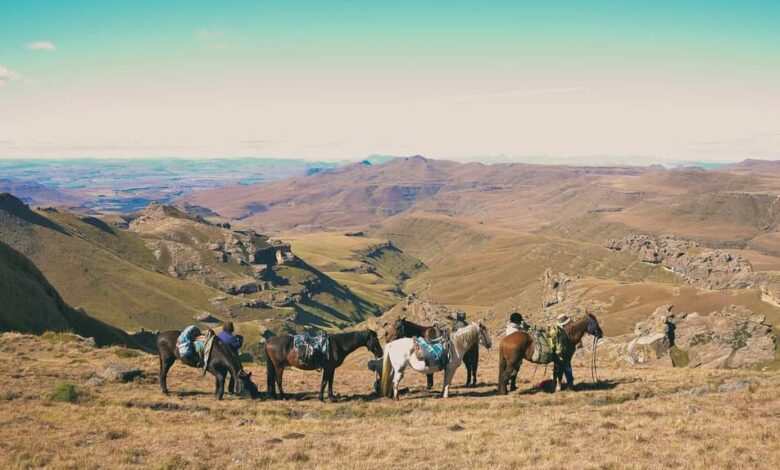Why Horses Are Widely Used in Lesotho

Lesotho, a small, landlocked country nestled in the mountains of Southern Africa, has a unique relationship with horses. This relationship is deeply rooted in the nation’s culture, history, and geography, making horses an integral part of daily life in Lesotho.
Historical Significance
The use of horses in Lesotho dates back to the early 19th century. When King Moshoeshoe I founded the Basotho nation, horses were introduced as a strategic asset in warfare and as a means of transportation. They played a crucial role in the military success of the Basotho people, providing mobility and speed that were essential for their survival and expansion. This historical significance has cemented the horse’s place in Basotho culture.
Geographical Advantage
Lesotho’s rugged terrain, characterized by steep mountains and high altitudes, presents significant challenges for transportation. In many parts of the country, roads are either non-existent or in poor condition, making horses an ideal mode of transport. They can navigate the difficult landscapes where vehicles often cannot reach, allowing for the transport of goods, people, and even livestock across challenging terrains.
Cultural Importance
Horses hold a special place in Basotho culture and traditions. They are not only seen as symbols of wealth and status but also feature prominently in various cultural ceremonies and events. For instance, horse racing is a popular and traditional sport in Lesotho, where competitions showcase the speed and skill of both riders and horses. This sport is a significant social event and is celebrated with much enthusiasm.
Economic Role
In addition to their cultural and historical roles, horses are also economically important. They are used in agriculture for plowing fields and transporting harvests, contributing to the agricultural productivity of the country. For many rural communities, horses are a critical part of their livelihood, providing a means of transport and labor that is often more affordable than motorized alternatives.
Challenges and Conservation
Despite their importance, horses in Lesotho face various challenges. The harsh climatic conditions and limited veterinary services can impact their health and well-being. Additionally, there is a need for more structured support and resources to ensure the sustainable management and welfare of horses.
In Lesotho, horses are more than just animals; they are vital to the country’s historical legacy, cultural practices, and economic activities. Their ability to navigate the rugged landscape and their deep-rooted cultural significance underscore their continued importance in Basotho life. As the country progresses, maintaining the well-being of these animals while preserving their traditional roles will be crucial for Lesotho’s cultural and economic stability.
Join 'Lesotho News' WhatsApp Channel
Get breaking Lesotho news — delivered directly to your WhatsApp.
CLICK HERE TO JOIN



